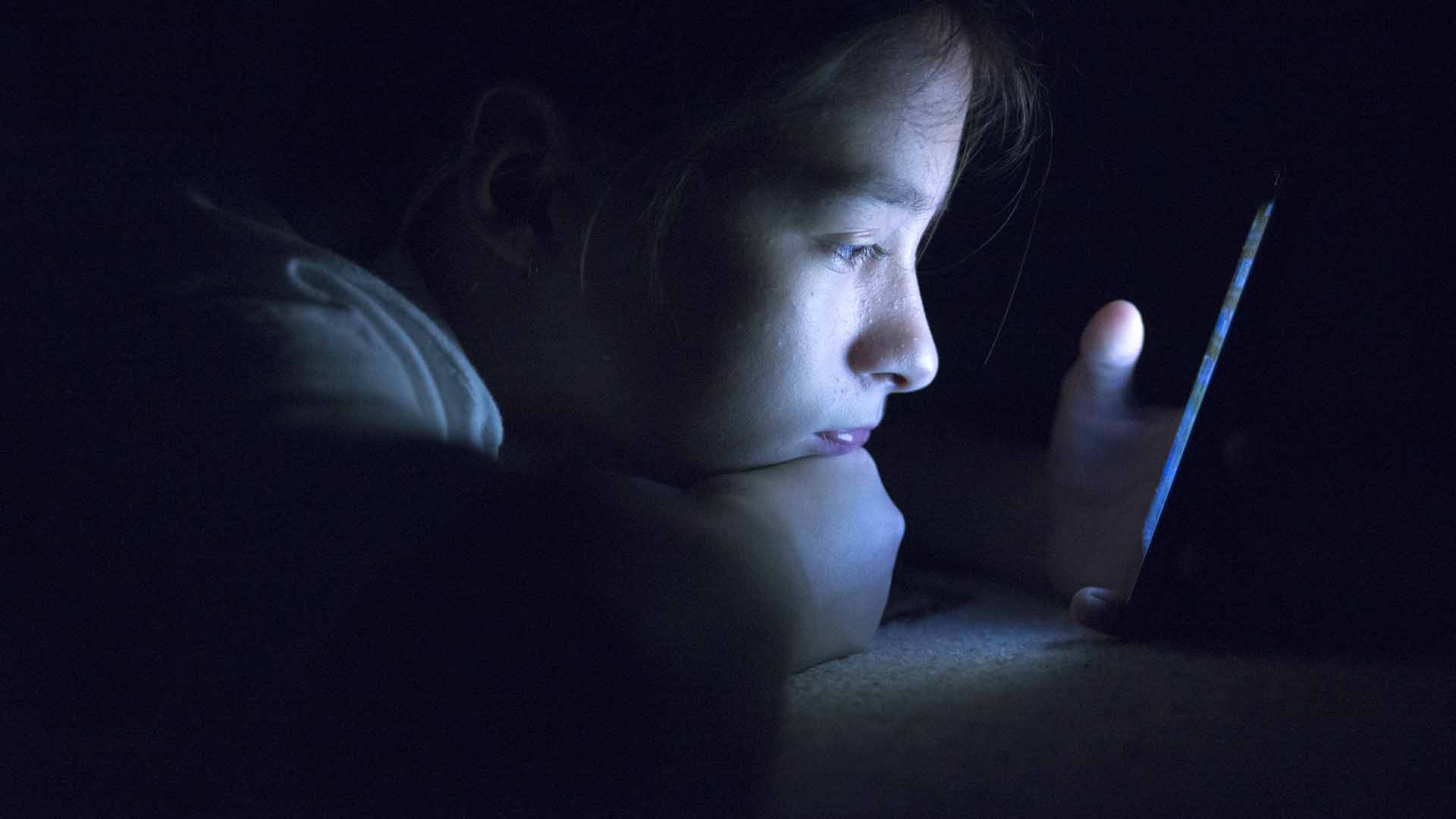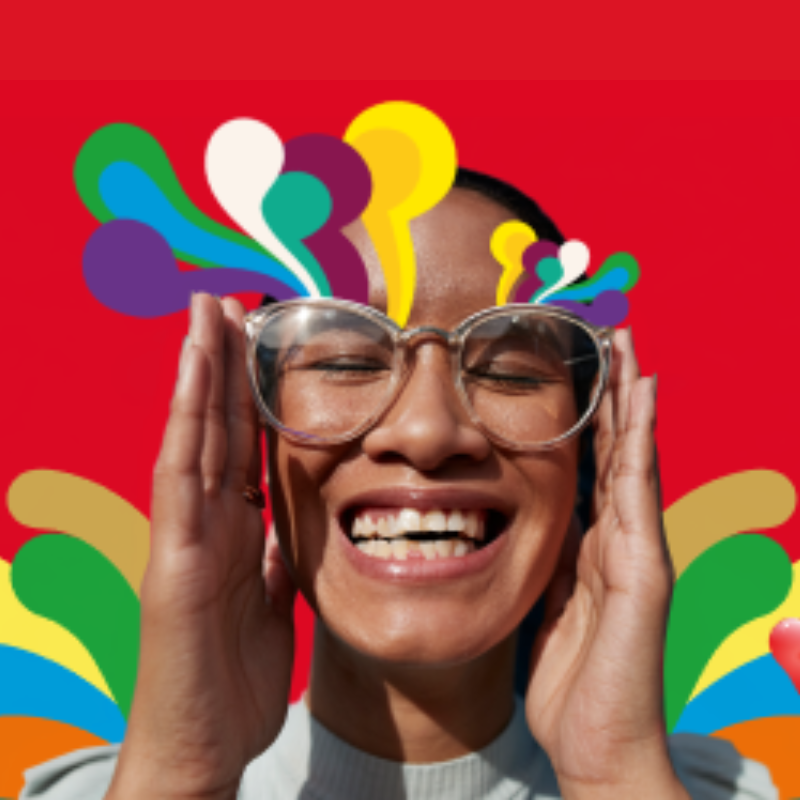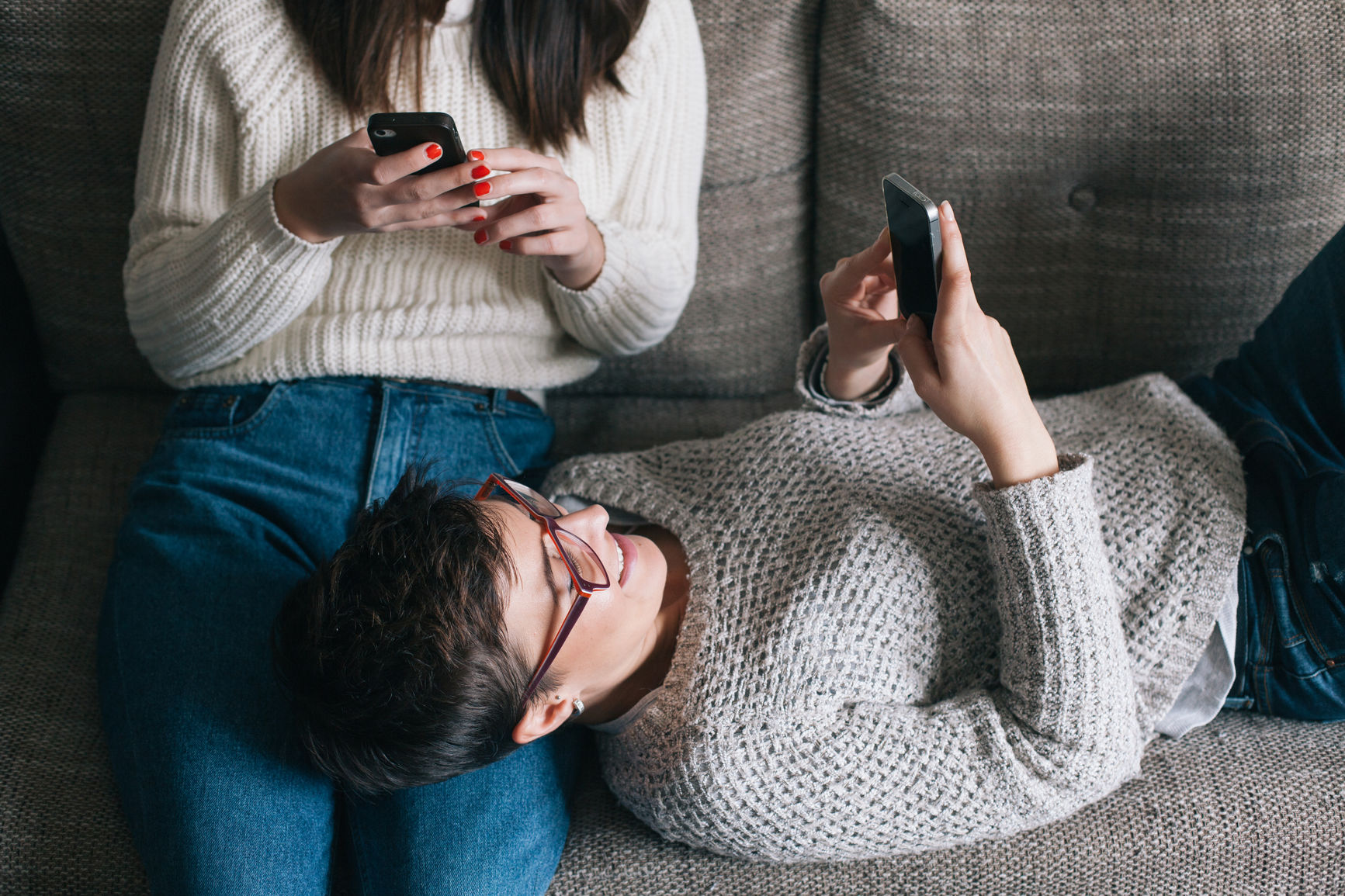-
What is blue light?
Visible light from the sun is made up of the colours you would associate with the rainbow: red, orange, yellow, green, blue, indigo and violet. Each colour on this spectrum has a different energy and wavelength.
At the red end, the waves are spaced further apart (longer) and contain less energy. On the other end of the spectrum, the blue/indigo/violet waves become increasingly narrower (shorter) and contain more energy. Collectively, these high-energy visible blue waves are known as blue light.
Most of your exposure to visible light, including blue light, comes from the sun. However, blue light is also emitted from a number of man-made sources including fluorescent and LED lights and electronic screens (e.g. computers, tablets, smartphones and televisions).
Your exposure to blue light from these devices is relatively minimal compared to being outside in the sun. But the growing concern among healthcare professionals is that these devices increase your total exposure – at all hours and while you’re indoors.
Are you getting too much blue light exposure?


100% back on optical on eligible extras
At Medibank we think you deserve to see the world clearly. That’s why when you join eligible Medibank extras you get 100% back on optical items at all recognised providers up to annual limits.*
-
What is blue light?
Visible light from the sun is made up of the colours you would associate with the rainbow: red, orange, yellow, green, blue, indigo and violet. Each colour on this spectrum has a different energy and wavelength.
At the red end, the waves are spaced further apart (longer) and contain less energy. On the other end of the spectrum, the blue/indigo/violet waves become increasingly narrower (shorter) and contain more energy. Collectively, these high-energy visible blue waves are known as blue light.
Most of your exposure to visible light, including blue light, comes from the sun. However, blue light is also emitted from a number of man-made sources including fluorescent and LED lights and electronic screens (e.g. computers, tablets, smartphones and televisions).
Your exposure to blue light from these devices is relatively minimal compared to being outside in the sun. But the growing concern among healthcare professionals is that these devices increase your total exposure – at all hours and while you’re indoors.
-
Blue light and eye strain
When visible light reaches the front of your eye, the cornea and lens work together to focus the light waves onto your retina at the back of your eye. Cells in your retina then convert light into electrical signals, which are sent to your brain for processing.
When you’re looking at a screen, your eyes find it more difficult to focus high-energy blue light waves, and this can lead to eye strain. Symptoms of eye strain include sore or irritated eyes and reduced visual contrast.
MORE: How to treat tired, dry and itchy eyes
Our sleep-wake cycles
It’s been well established that using your devices into the evening can disrupt your circadian rhythm and inhibit the production of melatonin – a hormone that plays a role in sleep regulation.
The circadian rhythm regulates a range of your body’s functions to a 24-hour cycle. Most notably, it makes you feel sleepy in the evening and wakeful in the morning. Your retinas play a key role in regulating your circadian rhythm by sensing light and relaying information about the time of day to your brain.
Research has linked night-time blue light exposure to a number of negative health outcomes, including difficulty sleeping, daytime drowsiness, weight gain, heart disease and depression.
MORE: How your phone habits affect your sleep
What are the long-term effects of blue light?
In short, the long-term effects of blue light on the eye are still unknown.
Previous generations have never been exposed to the same levels of blue light, or from such an early age. It will probably take decades to establish if there’s a link between blue light and eye problems.
While more research is needed, there is some evidence to suggest that too much blue light may damage the light-sensitive cells in your retina, which could increase your risk of macular degeneration later in life.
For this reason, healthcare professionals recommend exercising caution and limiting exposure wherever you can.
How to reduce blue light exposure
The good news is that blue light isn’t all doom and gloom. High-energy visible light has also been shown to elevate mood, boost alertness and improve memory. So instead of trying to block out blue light altogether, here are some tips for reducing your exposure:
Use the 20-20-20 rule. Take a 20 second break, every 20 minutes, to look at objects 20 feet (6 metres) away.
Keep your distance. Sit at least arm’s length from your screens and increase the font size so that you don’t need to hold devices closer or squint.
Brighten your surroundings. Avoid using screens in dark rooms and adjust the contrast, brightness and resolution to a comfortable setting.
Get set. Keep your screens clean and position them away from windows or other shiny surfaces to avoid glare and reflections.
Add a filter. Apply a filter to the surface of your smartphone, tablet and computer screens to prevent most of the blue light from these devices entering your eyes.
Activate night vision. Install an app or software on your devices to reduce the amount of blue light being emitted, particularly at night.
If you’re concerned about eye strain or damage, or you would like to learn more about lenses that can block out blue light, you should book a check-up with an eye care professional. Make an appointment to see an optometrist, who will refer you to an ophthalmologist if necessary.
Find out more about eye health and vision at Vision Eye Institute.
-
How is ‘phubbing’ hurting your relationships?
Here’s how to stop phubbing and be more mindful of your phone habits, to help improve face to face interactions with your family and friends.
-
Are the winter blues real?
Simple ways to boost your mood in winter.
-
Mental fitness explained
Just as you work to strengthen your body, your mental health deserves attention and exercise too.
-
Signs it's time to visit the dentist
Nobody wants to go. But there are good reasons to – promise.
-
The link between stress, anxiety and jaw pain
Physiotherapist Michael Chan explains how stress and anxiety can cause jaw pain, and how to help get some relief.
-
When you can't sleep next to your partner
You love everything about them – except their sleep habits.
Things you should know:
* Excludes Healthy Living Extras and select products that are no longer available for sale (for more information check your cover summary or check this page). Applies to prescription glasses and select contact lenses. Some glasses lens coatings and contact lenses are excluded. To find which specific items are included or excluded, call us on 132 331. 6 month waiting period applies.





.jpg)
